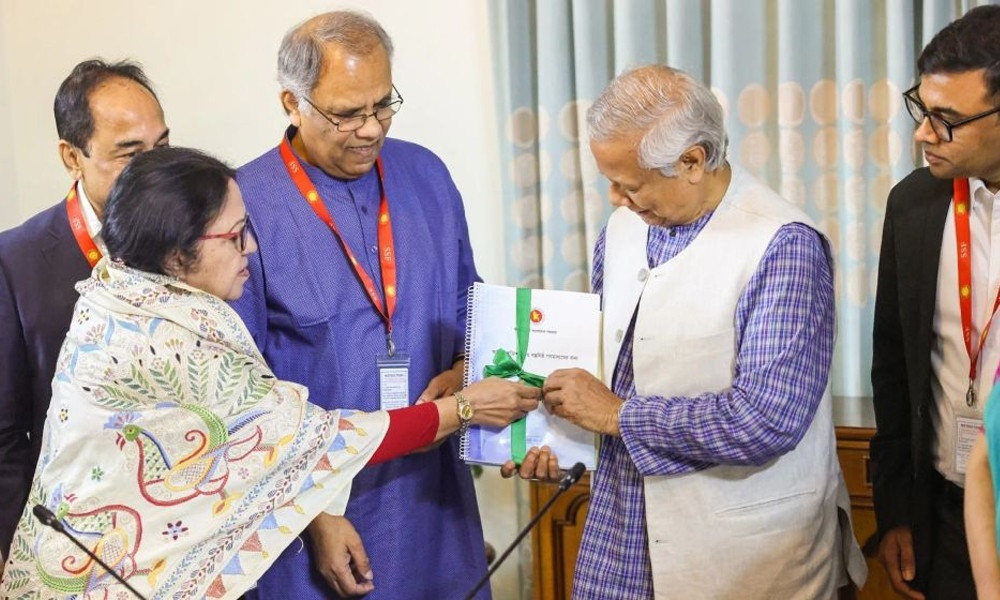Journalists express mixed reactions on Media Reform Commission report
Daily Sun Report
Published: 25 Mar 2025

Photo: Collected
The report from the Media Reform Commission has sparked mixed reactions among journalists. While some believe that parts of the report are practical and beneficial, others view certain proposals as unrealistic or even bizarre, making them difficult to implement in Bangladesh’s context. On the other hand, some argue that the recommendations are logical and feasible, contributing to greater transparency and professionalism in journalism.
Supporters of the report claim that its implementation would enhance the overall quality of journalism and help establish good governance in the country. They urge the government to take necessary steps to put these recommendations into action.
Several reform commissions were established after the interim government took office to address demands from the July mass uprising. On 18 November, senior journalist Kamal Ahmed was appointed as the head of the Media Reform Commission. The commission submitted its report to the Chief Adviser on Saturday.
The report highlights the lack of fair competition in the media sector, arguing that the industry has long been dominated by individuals with illicit financial influence. It calls for transparency in circulation figures and suggests that no company or individual should own multiple media outlets. Instead, a ‘One House, One Media’ policy should be implemented.
The commission proposes aligning journalists’ salaries with the ninth-grade pay scale of BCS cadre officers. It also recommends the introduction of a Journalists’ Protection Act and setting a minimum qualification of a bachelor’s degree for entering the profession. Additionally, the commission suggests that media organisations be publicly listed to prevent ownership from being concentrated within a single individual, family, or group.
Matiur Rahman Chowdhury, Chief Editor of Daily Manabzamin, stated that the commission’s report contains both realistic and impractical elements, with some bizarre recommendations. He questioned whether the new rules would be effective at district and upazila levels. He argued that a mere certificate cannot resolve the disorder in the media industry.
Chowdhury pointed out the economic crisis, where investors are hesitant to invest. He criticised the proposal to match journalists’ salaries with BCS officers, questioning whether the commission members were detached from reality. He warned that enforcing such measures could stifle small media outlets. He also argued that the government should not dictate salary structures for private businesses and expressed concerns about limiting the number of media outlets owned by a single house.
Kader Gani Chowdhury, General Secretary of the Bangladesh Federal Union of Journalists (BFUJ), acknowledged some positive aspects of the report but noted a lack of innovation. He speculated that certain recommendations might have been influenced by powerful media houses. He criticised the proposal for a BCS-equivalent salary, warning that most media outlets would struggle to afford such costs.
Chowdhury also expressed surprise at the recommendation to limit the number of media outlets a company can own. He suggested that the proposal might serve the interests of certain business groups aiming to dominate the industry. He pointed to examples like Anandabazar Group in India, which owns multiple publications without government restrictions. He questioned whether the commission’s ‘One House, One Media’ policy was truly objective, especially given reports suggesting that a large business house had influenced the commission’s findings.
Abu Saleh Akon, President of Dhaka Reporters’ Unity (DRU), expressed strong support for the commission’s recommendations, calling them logical and necessary. He emphasised that higher salaries would attract talented professionals to journalism and backed the requirement for journalists to have at least a bachelor’s degree. He stated that the media should uphold a high standard, as it serves as society’s mirror.
Akon urged the government to implement the recommendations as soon as possible to ensure transparency in the media sector. He argued that these reforms would not only improve journalistic professionalism but also contribute to the establishment of good governance across the country.

